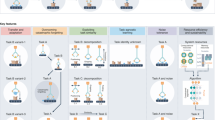
Overview
Part of the book series: Synthesis Lectures on Artificial Intelligence and Machine Learning (SLAIML)
Access this book
Other ways to access
About this book
Lifelong Machine Learning (or Lifelong Learning) is an advanced machine learning paradigm that learns continuously, accumulates the knowledge learned in previous tasks, and uses it to help future learning. In the process, the learner becomes more and more knowledgeable and effective at learning. This learning ability is one of the hallmarks of human intelligence. However, the current dominant machine learning paradigm learns in isolation: given a training dataset, it runs a machine learning algorithm on the dataset to produce a model. It makes no attempt to retain the learned knowledge and use it in future learning. Although this isolated learning paradigm has been very successful, it requires a large number of training examples, and is only suitable for well-defined and narrow tasks. In comparison, we humans can learn effectively with a few examples because we have accumulated so much knowledge in the past which enables us to learn with little data or effort. Lifelong learning aims to achieve this capability. As statistical machine learning matures, it is time to make a major effort to break the isolated learning tradition and to study lifelong learning to bring machine learning to new heights. Applications such as intelligent assistants, chatbots, and physical robots that interact with humans and systems in real-life environments are also calling for such lifelong learning capabilities. Without the ability to accumulate the learned knowledge and use it to learn more knowledge incrementally, a system will probably never be truly intelligent. This book serves as an introductory text and survey to lifelong learning.
Similar content being viewed by others
Table of contents (7 chapters)
Authors and Affiliations
About the authors
Bibliographic Information
Book Title: Lifelong Machine Learning
Authors: Zhiyuan Chen, Bing Liu
Series Title: Synthesis Lectures on Artificial Intelligence and Machine Learning
DOI: https://doi.org/10.1007/978-3-031-01575-5
Publisher: Springer Cham
eBook Packages: Synthesis Collection of Technology (R0), eBColl Synthesis Collection 7
Copyright Information: Springer Nature Switzerland AG 2017
eBook ISBN: 978-3-031-01575-5Published: 10 November 2022
Series ISSN: 1939-4608
Series E-ISSN: 1939-4616
Edition Number: 1
Number of Pages: IV, 145
Topics: Artificial Intelligence, Machine Learning, Mathematical Models of Cognitive Processes and Neural Networks



